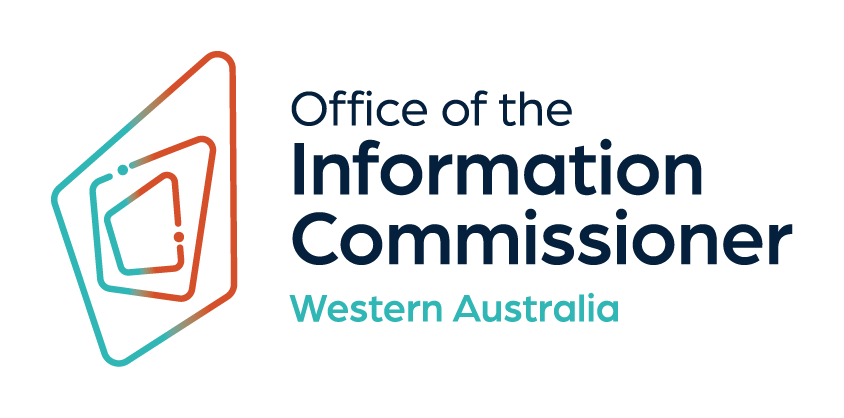Role of the Information Commissioner
The OIC is led by the Information Commissioner (Commissioner), an independent statutory office established under the Information Commissioner Act 2024 (WA) (the IC Act), who reports directly to the WA Parliament.
Annelies Moens has been appointed Commissioner, commencing 28 July 2025.
The Commissioner is responsible for exercising specific functions and powers outlined in the Freedom of Information Act 1992 (WA) (the FOI Act), the Privacy and Responsible Information Sharing Act 2024 (WA) (the PRIS Act), and the IC Act.
The Commissioner will be supported by two other statutory office holders, the Privacy Deputy Commissioner and Information Access Deputy Commissioner, to perform the privacy and freedom of information functions provided in the legislation.
Nina Skewes has been appointed as Privacy Deputy Commissioner, commencing 27 January 2026.
Patrick Ky has been appointed as Information Access Deputy Commissioner, commencing 23 February 2026.
Freedom of information functions
The Information Commissioner and the Information Access Deputy Commissioner have the following functions:
- Undertaking independent external merits review of decisions made by State and local government agencies under the FOI Act in respect of applications to access documents or amend personal information. This includes:
- Conciliating, investigating and determining applications for external review; and
- Where applications for external review are not resolved by conciliation, making binding determinations that are appealable to the Supreme Court on a question of law.
- Ensuring Western Australian government agencies and members of the public are aware of their respective obligations and rights under the FOI Act.
- Providing assistance to members of the public and agencies on matters relevant to the FOI Act.
- Recommending any legislative or administrative changes that might assist in achieving the objects of the FOI Act.
Privacy functions
The Information Commissioner and the Privacy Deputy Commissioner have the following functions:
- Ensuring the Western Australian public sector and members of the public are aware of their respective obligations and rights under the privacy provisions of the PRIS Act including the Information Privacy Principles.
- Promoting the objects of the PRIS Act as set out in sections 3(a)-(e).
- Conciliating, investigating and determining privacy complaints in relation to alleged interferences with the privacy of an individual under the PRIS Act;
- Developing privacy guidelines, making public interest determinations, administering the notifiable information breach scheme, making recommendations in respect of privacy codes of practice, own-motion investigations and other enforcement and compliance activities under the PRIS Act.
- Recommending any legislative or administrative changes that might assist in achieving
The Information Commissioner is also a member of the State Records Commission, which consists of four members and is supported by the State Records Office.
Our brand
We’re proud to launch a new brand identity for the new Office of the Information Commissioner Western Australia (OIC), established on 1 July 2025 under the Information Commissioner Act 2024 (WA).
The new brand reinforces our role as the independent regulator, fostering trust and accountability in WA through privacy and freedom of information.
The OIC serves the people of Western Australia in carrying out its FOI and privacy regulatory functions.
The shape of the logo embodies Western Australia. The colour palette, inspired by Western Australia’s distinctive landscape, reinforces our deep connection to the region. The gradient of orange and blue represents the intersection of privacy and freedom of information, showing the connection between our functions.
The movement of the gradient also reflects the flow of information between people and government agencies. At the heart of the OIC is a people-focused commitment, with citizens represented by the two dots at the centre of our logo.
As we look to the future, the upward trajectory of our logo embodies growth, progress and forward thinking. The design conveys technology and progression with dynamic graphic elements and a modern, clean design.
Consulting with the Office of the Information Commissioner
The Office welcomes opportunities to participate in consultation processes and to contribute expertise that supports sound policy development and legislative design.
Consultation with the Office of the Information Commissioner is required where proposals, policies, or changes to legislation may impact the Freedom of Information Act 1992 (WA) (the FOI Act), the Privacy and Responsible Information Sharing Act 2024 (WA) (the PRIS Act). This includes any amendments, new initiatives, or reforms that affect information access, privacy, or regulatory oversight under these Acts.
Please email the office at info@oic.wa.gov.au to begin the consultation process.
Freedom of Information
Show moreFreedom of Information gives the public a right to access government documents, subject to some limitations. In Western Australia, under the Freedom of Information Act 1992 (the FOI Act), the right applies to documents held by most State government agencies (such as departments, public hospitals, public universities and State government authorities), Ministers and local government. Together, these bodies are referred to as “agencies”.
Documents accessible under the FOI Act include paper records, plans and drawings, photographs, tape recordings, films, videotapes or information stored in a computerised form.
Agencies are required to assist applicants to obtain access to documents at the lowest reasonable cost.
Anyone can also apply to have personal information about themselves in government documents amended if that information is inaccurate, incomplete, out of date or misleading.
Privacy
Show moreThe Privacy and Responsible Information Sharing Act (the PRIS Act) provides a framework to protect the privacy of personal information handled by public entities and to authorise the responsible sharing of information held by public entities.
The PRIS Act includes eleven information privacy principles (IPPs) and provides for a mandatory information breach notification scheme. However, the provisions relating to the IPPs and the mandatory information breach notification scheme have not yet commenced.
The PRIS Act allows for a staggered roll-out of the commencement of various parts of the PRIS Act. Part 1 of the PRIS Act commenced on 6 December 2024. Part 1 sets out various preliminary matters including the objects and definitions. Part 7 of the PRIS Act has also commenced and relates to amendments linked to the commencement of the Criminal Law (Mental Impairment) Act 2023.
For information about the commencement of the remainder of the PRIS Act see Privacy Legislation in Western Australia.
Customer Service Charter
Show moreOur Services
The Office of the Information Commissioner (the OIC) provides services for the public, government agencies and Parliament.
Services for the Public
- the conduct of reviews (including conciliation as a preferred method of dispute resolution)
- the publication of awareness-raising and educational information
- talks and information sessions for community groups
- a telephone advisory service
- a free call telephone line for WA country callers
- access to published decisions made by the Information Commissioner
Services for Agencies
- a telephone advisory service
- FOI training
- specifically tailored meetings and advisory sessions
- manuals and other publications
Services for Parliament
- annual report containing statistics on the level and outcome of FOI applications in agencies together with other information about the workings of the legislation
- appearances before Parliamentary committees
Standards of service
The Office of the Information Commissioner is committed to providing a quality service which is delivered in a reliable and responsible manner. Its performance standards are intended to ensure that all staff undertake their duties in ways that are a credit to the professional and independent status of the Office and to ensure that participants are provided with timely and responsive levels of service.
All members aim to meet the following service standards.
- Staff identify themselves by name when communicating with the public and, when requested or in writing, by position.
- A contact name accompanies all correspondence and telephone contacts are given for future reference.
- Assistance is given on an individual basis by the most appropriate officer
- Inquiries are managed by a single officer throughout, where possible.
- Telephone enquiries are answered immediately and calls are returned the same day when required.
- Replies to written general enquiries are sent within two working days of receipt of the enquiries.
- Communication is courteous.
- Written communication and reasons for formal decisions are expressed clearly.
- Conflicts of interest are declared to the Information Commissioner, and steps are taken to resolve any conflicts.
- There is a Code of Conduct of the Office of the Information Commissioner, with confidentiality obligations.
- Privacy of individuals is observed.
- The website provides a wide range of information, including a search facility for published decisions.
Making a complaint about the OIC
The Office of the Information Commissioner (the OIC) takes any complaints about the quality of the service we provide seriously. Feedback and complaints are an opportunity for us to improve the way we provide our services.
A complaint is an expression of dissatisfaction, about the actions or services of the OIC and the associated conduct of the Information Commissioner (the Commissioner) and/or other OIC officers.
A formal complaint is an expression of dissatisfaction, in writing, about the actions or services of the OIC and the associated conduct of officers of the Commissioner and/or other OIC officers, where a response or resolution is expected or required.
Dissatisfaction with a decision made by the Information Commissioner pursuant to the Freedom of Information Act 1992 (WA) (FOI Act), where specific appeal rights are available, is not a ground for complaint.
You are encouraged to resolve your complaint informally. However, if you remain dissatisfied with the actions or services from the officer you are dealing with, you may wish to make a formal complaint.
Formal complaints must be in writing, marked ‘Private and Confidential’ and sent:
By post to:
Information Commissioner
Office of the Information Commissioner
Albert Facey House
469 Wellington Street
PERTH WA 6000
Or
By email to: info@oic.wa.gov.au
For more information, refer to our Complaints Management Procedure (PDF, 258KB)





